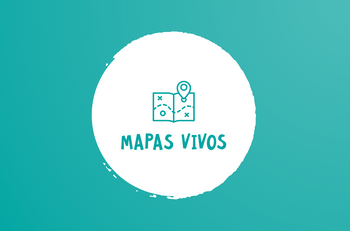

Currently, there is a growing disconnect between people and their natural and social environment. The pervasiveness of technology, urban lifestyles, and the lack of opportunities to explore and engage directly with nature have led many people to find it difficult to interact with and understand the world around them. This has affected the ability of humans to have a direct dialogue with the world, their limited ability to perceive and understand the environment, and the difficulty in establishing connections between human bodily processes and environmental/ecological processes. This situation prevents people from weaving a resilient and strong territory, leaving them vulnerable to challenges that may arise in their environment. Living Maps was created by OpEPA in collaboration with the Fundación Cerros de Bogotá to address this issue. The first implementation of this idea took place in 2021 through virtual workshops carried out by OpEPA, in which a total of 56 teachers from 38 educational institutions in 3 cities in Colombia participated. Since then, 13 teachers have implemented Living Maps with a total of 390 students. Also, 3 face-to-face experiences of Living Maps led by teachers in different Colombian cities were selected to be exhibited at the COP 26 Conference on Climate Change in Glasgow as significant examples of the work carried out in the country.

Links